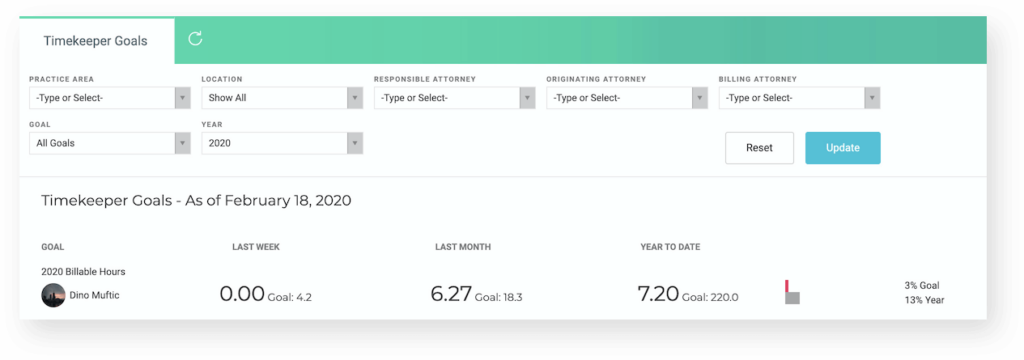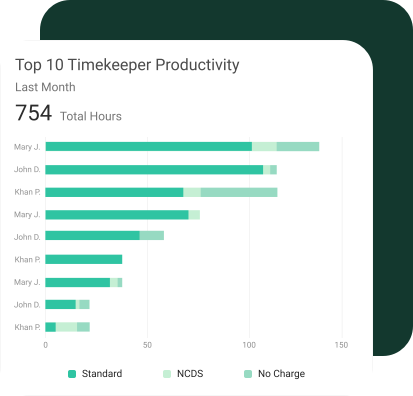Accurate billing is essential in any law firm, but for many lawyers, the process of tracking time can be tedious and prone to error.
Keeping up with multiple clients, cases, and tasks throughout the day can make accurate time tracking feel like a chore. And yet, time is money—especially in a law firm. That’s why passive timekeeping is quickly becoming the go-to solution for law firms looking to streamline their billing process.
What Is Passive Timekeeping?
Passive timekeeping is exactly what it sounds like—time tracking that happens automatically in the background without the need to manually start or stop a timer. This technology monitors your activity throughout the day, whether you’re drafting a motion, emailing a client, or attending a Zoom hearing, and logs your time accordingly.
For example, when you respond to a client’s inquiry via email, your passive timekeeping tool logs the time it takes to draft your message. Even brief tasks, like a quick phone call or reviewing a legal brief, are captured without interruption to your workflow.

Why Passive Timekeeping Works for Law Firms
Accurate billing is essential in any law firm, but for many lawyers, the process of tracking time can be tedious and prone to error. A missed 15-minute phone call or a forgotten email can mean lost revenue. Here’s how passive timekeeping helps:
- Comprehensive Time Capture: Traditional methods often lead to missed time entries. You might forget to log a quick consultation or undervalue the time spent preparing documents. Passive timekeeping tracks all your activities automatically—whether you’re in a client meeting, researching a case, or reviewing court documents—ensuring no billable hour is lost.
- Effortless Time Management: With passive timekeeping, there’s no need to toggle timers or manually record tasks. This means you can focus on practicing law rather than worrying about administrative details. It’s especially useful for attorneys who frequently switch between tasks throughout the day.
- Detailed and Accurate Billing: Clients expect transparency in their invoices, and passive timekeeping provides detailed records of every task, down to the minute. This level of accuracy reduces the risk of disputes and ensures that clients are charged fairly for the work performed.
- Maximized Revenue: By capturing more billable time—especially those short, often forgotten tasks—law firms can increase their overall revenue without additional effort. The difference between billing for 50 minutes versus 45 minutes per day might seem small, but it adds up significantly over weeks and months.
Imagine you’re preparing for a trial and juggling multiple tasks throughout the day:
- 8:30 a.m.: You begin your day by drafting a motion in Microsoft Word. The passive timekeeping tool automatically starts tracking the time you spend on that document.
- 9:15 a.m.: You pause to respond to an urgent client email. The tool notices the shift in activity and logs your time spent in your email client.
- 9:25 a.m.: You quickly jump on a five-minute call with a colleague to discuss the case. The system tracks the time spent on the phone as well, even for this short call.
- 9:35 a.m.: You return to your motion and continue drafting. The tool picks up right where it left off, logging the time until you close the document.
At the end of the day, your timekeeping tool generates a report showing each task you completed, how long you spent on it, and the client associated with the work. All of this is done without you having to manually start or stop any timers.
For law firms still using manual time tracking methods, switching to a system with passive timekeeping is a worthwhile investment.

Is Passive Timekeeping Right for Your Firm?
Passive timekeeping is particularly beneficial for attorneys in fast-paced environments where multi-tasking is common. For small to mid-size firms, where administrative support may be limited, automating time capture can reduce overhead and ensure more accurate billing. It’s also a smart choice for mid-sized firms that want to improve efficiency without sacrificing accuracy.
However, if your practice involves long blocks of time spent on a single task, you might not see as dramatic of an impact. That said, the hands-off nature of passive timekeeping can still save you from forgetting those smaller, in-between tasks that often go unbilled.
Time to Make Time Tracking Easier
In an industry where every minute counts, passive timekeeping is a smart investment that can significantly enhance the profitability and efficiency of your firm. Whether you’re looking to improve billing accuracy or reduce the burden of administrative work, this technology is poised to become a cornerstone of modern law firm management.
By automating time capture, you can focus more on practicing law and less on tracking it. Whether you’re a solo practitioner or part of a larger firm, passive timekeeping could be the key to simplifying your workflow and improving your revenue. Schedule a demo of CARET Legal today and discover how you can bill for every minute of your work.
